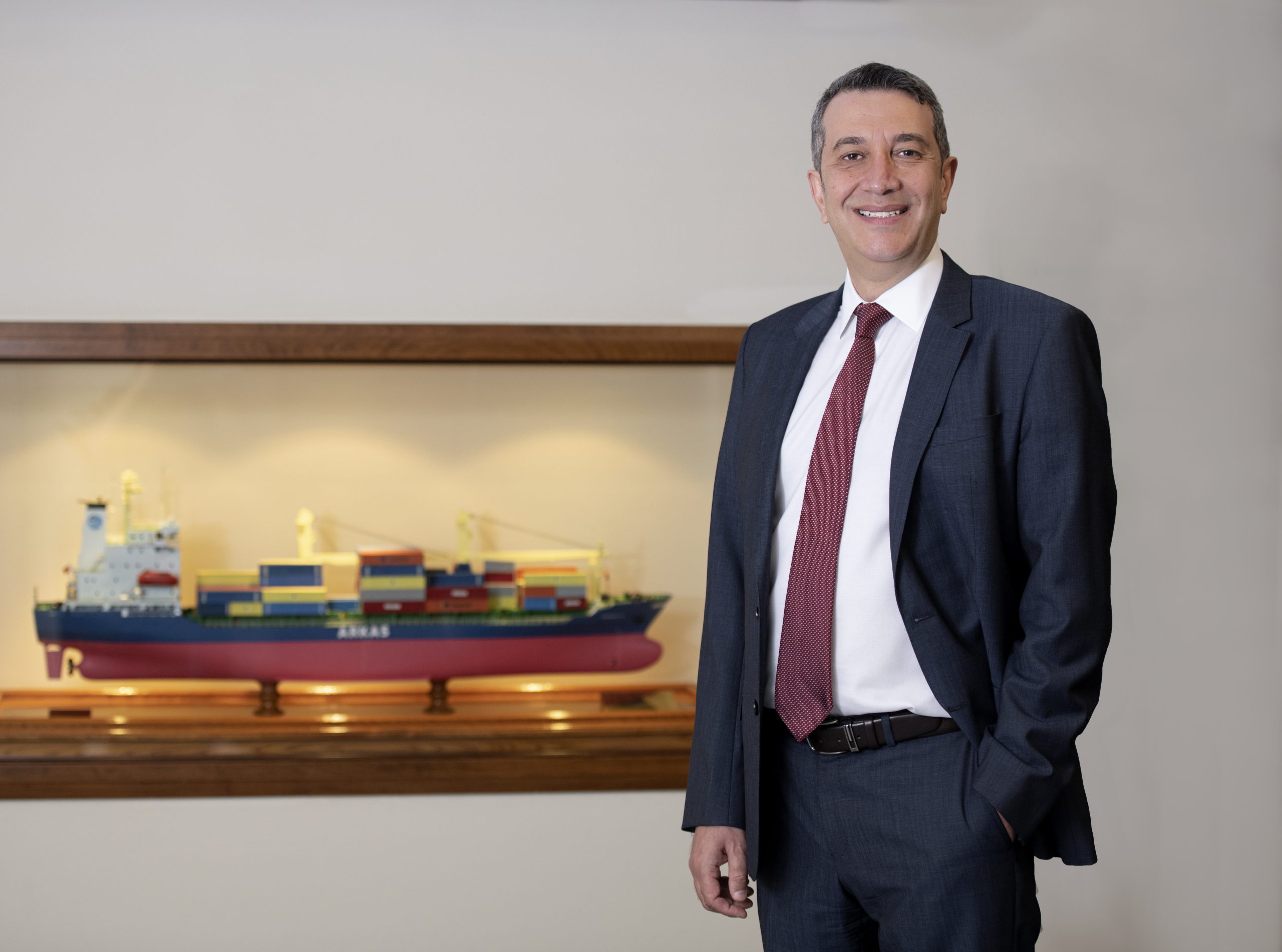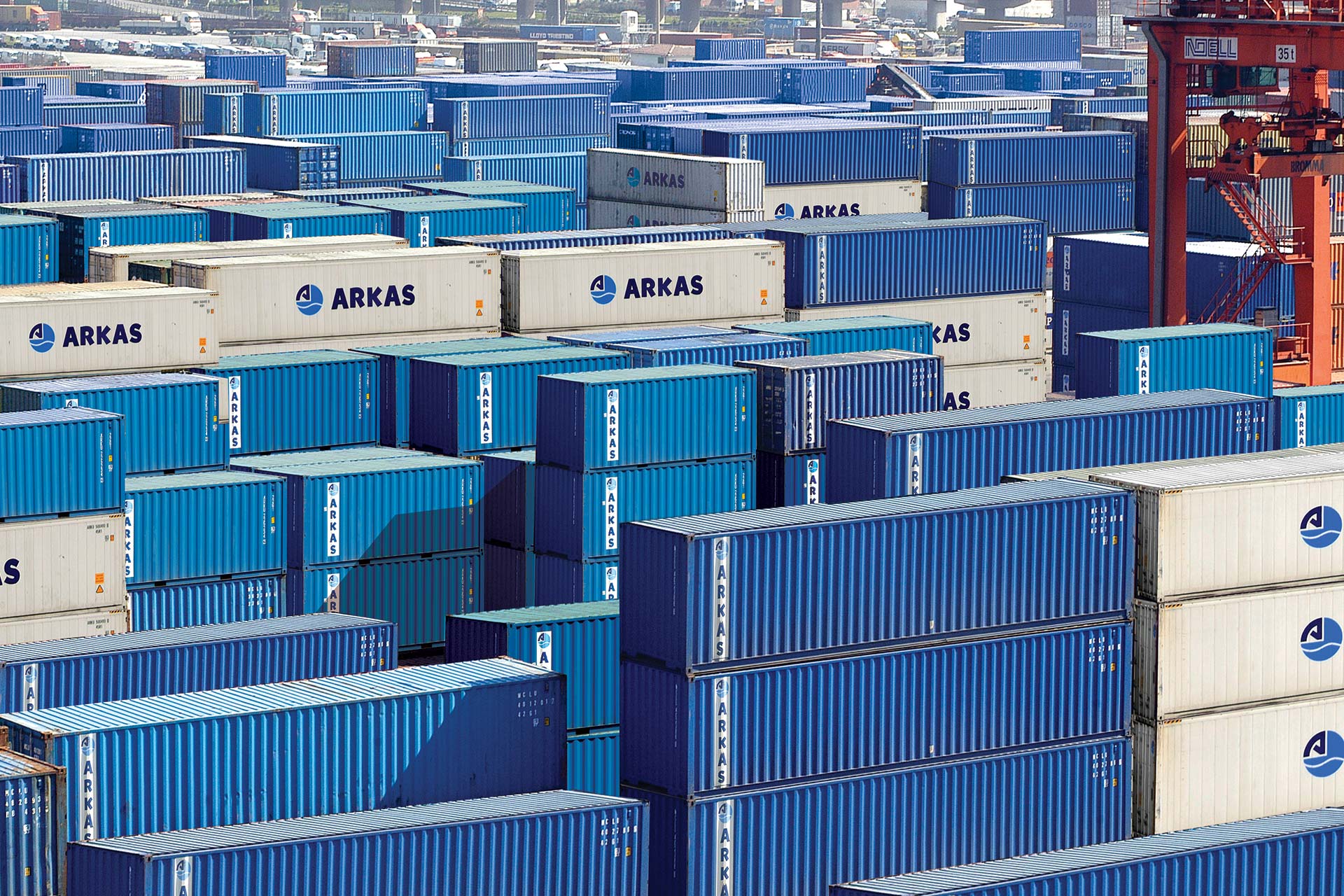The increase in freight rates in the pandemic era and problems in container mobility are the hot items of agenda in Turkish maritime industry. Arkas Line CEO Can Atalay gave a speech about the interesting aspects of the subject, and the realities about the industry in webinars Haftasonu Bulusmalari (Weekend Meetings), organized by Kocaeli Chamber of Commerce and Navlun Piyasalari ve Gelecek Beklentileri (Freight Markets and Future Expectations) organized by DEIK Council of Logistics Business. Atalay stated that one of the most important elements which affect freight rates is the supply and demand equilibrium, but costs may increase again in the upcoming period due to the new regulation.
Arkas Line CEO Can Atalay participated in the webinar Navlun Piyasalari ve Gelecek Beklentileri (Freight Markets and Future Expectations) organized by DEIK Council of Logistics Business. Atalay made remarks about the expectations for the remainder of the year 2021 and ahead, as part of the theme of managing the future of containers using the lessons learned today. Commenting on the activity in the area of freight, Atalay expressed that one of the most important elements which reflect on freight rates in the sector is the supply and demand equilibrium. Atalay went on to express that the sufficiency of container ships to meet this demand, that is, supply, is critically important, and said “Before the Covid-19 pandemic, the current container fleet was sufficient for the global trade. However, today’s problems occurred because of the congestion in the logistics chain. This problem will diminish as the pandemic declines. It is apparent that we will have these problems until the end of this year. However, we are taking measures for the next year”.

Fundamental Reasons of the Container Problem
Arkas Line CEO Can Atalay went on: “During the pandemic, long waiting times at ports, extended service lead times, China’s faster-than-expected recovery and the rapid increase in demands from the USA led to capacity problems. This upset the logistics chain and as a result, required amount of empty containers could not be made ready where and when needed. This problem was only exacerbated by the facts that port, warehouse and truck companies were working with reduced numbers of personnel due to the pandemic, and that there were no spare ships”. Can Atalay also touched upon the increase in chartering costs, and went on “Even if the present container fleet is sufficient to meet the demand, the fact that ships cannot return at the needed speed led to a demand for additional ships. In September 2020, shipping lines started reinforcing their fleets with chartered ships and this, coupled with the increased difficulty of finding a ship of required qualities at a required time, resulted in increasing costs. I expect that freight rates will remain about the same throughout 2021 and 2022.”
IMO’s New Regulation May Reflect on Freight Costs
Arkas Line CEO Can Atalay raised his concern over the new regulation of IMO (International Maritime Organization), which is another critical subject in the current agenda. Emphasizing that carbon dioxide emission is expected to decrease by 40% by 2030 compared to 2008, Atalay added that this percentage is expected to reach 70% by the year 2050. Reminding that a change for the energy efficiency index for current ships is approved at MARPOL, Atalay said “As of Q4 2022 or the year 2023, current ships will decrease their carbon dioxide emissions according to this regulation. This index is a system which measures the carbon dioxide emission created by a ship for transporting one ton of load for one sea mile. This is serious, because it also concerns machine technologies, shipyard technologies, ship design and construction. These disciplines will produce ships that comply with this new regulation, and lines like us will use these ships. But costs will increase too much. An estimated investment of 1 to 1.4 billion dollars is required for the maritime industry and this is only for the twenty years between 2030 and 2050.”
Atalay pointed out that unless there is a change in the regulation, then this investment will become necessary, and there is very little time until the changes with the regulation take place. Atalay also reminded that when low-sulfur fuel was stipulated at the beginning of 2020 this suddenly increased freight rates, and a similar outcome might take place in 2023 when this new regulation is put into effect.


